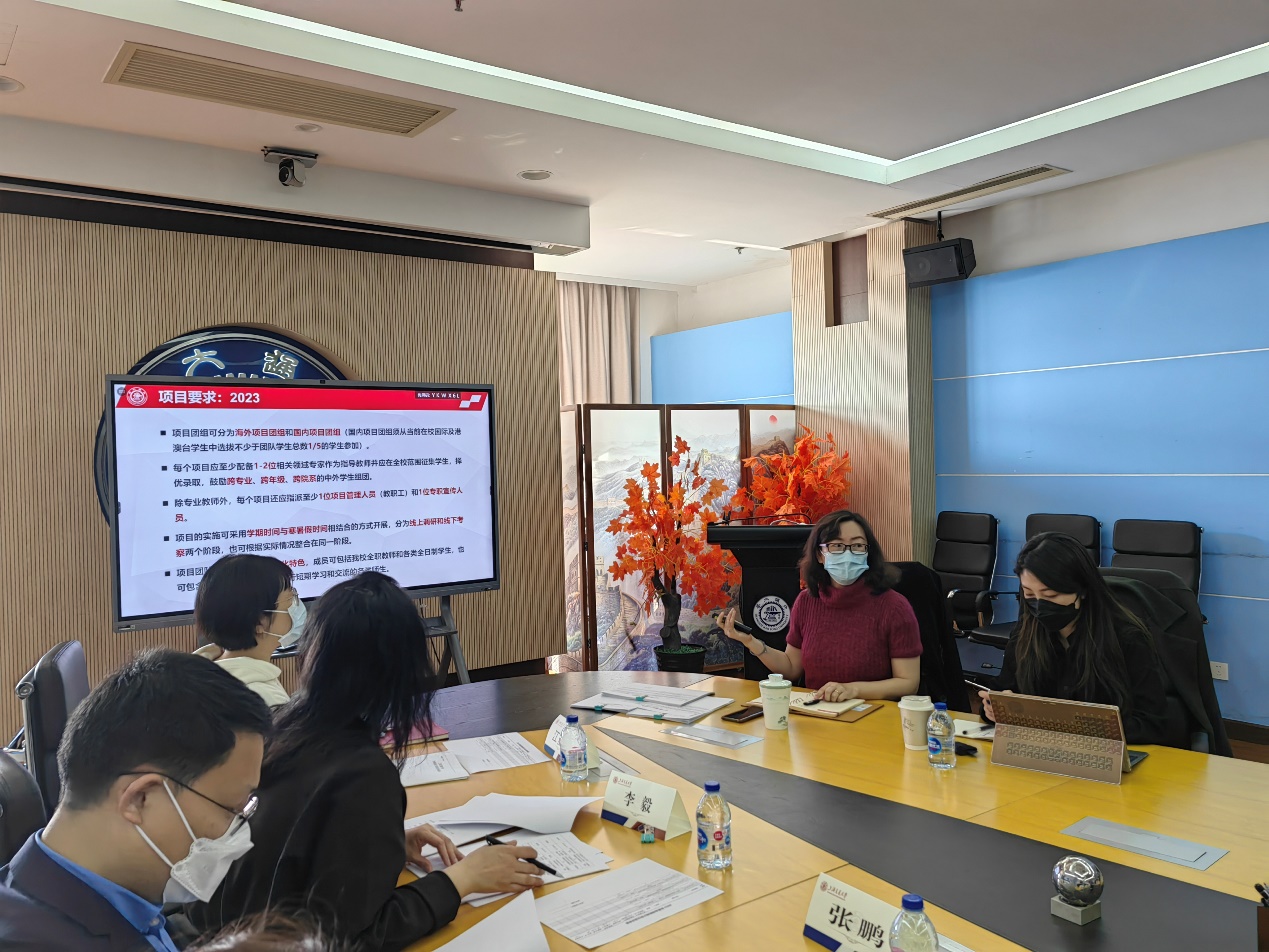On March 10th, the project defense and review meeting for the "2023 Global Challenges Program" was held at the Minhang Campus of Shanghai Jiao Tong University. The review expert committee was composed of leaders from various departments and offices, including Vice Dean Cheng Jinhua from the Graduate School, Director Hu Wei from the Key Construction Office of the Planning Department, Deputy Director Tong Yuerong from the Academic Affairs Office, Deputy Director Ge Yang from the Student Affairs Office, Deputy Director Han Haibo from the Academic Development and Achievements Office of the Research Institute, Deputy Director Li Yi from the Development and Liaison Office, Deputy Director Zhang Peng from the Local Cooperation Office, Jiang Qianqian from the Party Committee Propaganda Department, and Director Luo Peng from the International Office.
During the review meeting, Liu Jian, the Director of the Global Communications Office at the International Office, briefly introduced the progress of the "Global Challenges Program." Since 2018, with the integration of internal and external cooperative resources, and with the strong support of various departments and faculty members and students across the university, the International Office has funded and implemented 22 projects under the Global Challenges Program. Nearly 600 students and over a hundred Chinese and foreign teachers have participated, covering more than 10 countries including Thailand, Kenya, and Bulgaria. The students' global competence and the international influence of Shanghai Jiao Tong University have been significantly enhanced.
After in-depth and enthusiastic discussions, the attending expert reviewers provided thoughtful opinions and suggestions for each defense project. Luo Peng expressed that the Global Challenges Program aims to cultivate a sense of responsibility for the "community of shared future for mankind" and a sense of patriotism among young students. By conducting on-site investigations and practical experiences both domestically and internationally, the program promotes the expansion of students' international experiences, broadens their global perspectives, and enhances their understanding of the beneficial achievements of human civilization. It also fosters students' global competence. Luo Peng sincerely hopes that more teachers from our university will join this program's application, leading Jiao Tong students to interpret the saying "Read ten thousand books, travel ten thousand miles, and understand the world through action."


Project Introduction
In order to actively leverage the value of a top-tier university in talent cultivation, Shanghai Jiao Tong University launched the "Global Challenges Program" in 2018. This program aims to cultivate a sense of responsibility for the "community of shared future for mankind" and a sense of patriotism among young students. It promotes the expansion of students' international experiences and broadens their global perspectives. In diverse cultural backgrounds and challenging yet safe environments, students engage in on-site investigations and practical experiences to understand the beneficial achievements of human civilization. The program aims to stimulate students' innovative thinking and potential, disseminate knowledge and achievements of human civilization, contemplate and address the common challenges faced in human development, and cultivate students' global competence, contributing the wisdom of young students.
The Global Challenges Program consists of a series of challenge projects released periodically. Each project consists of an international student team composed of SJTU students (including international students) and students from different countries and regions. They travel to underdeveloped areas within China or underdeveloped countries in the world, such as Africa, Latin America, Southeast Asia, etc., to conduct on-site project research for a duration of 2 to 8 weeks. The projects focus on universal issues of significance that are faced by humanity, such as water scarcity, food security, waste management, etc. Through research, policy analysis, and the application of scientific research methods, the program aims to propose actionable and feasible solutions and assist in their implementation at the local level as much as possible.

